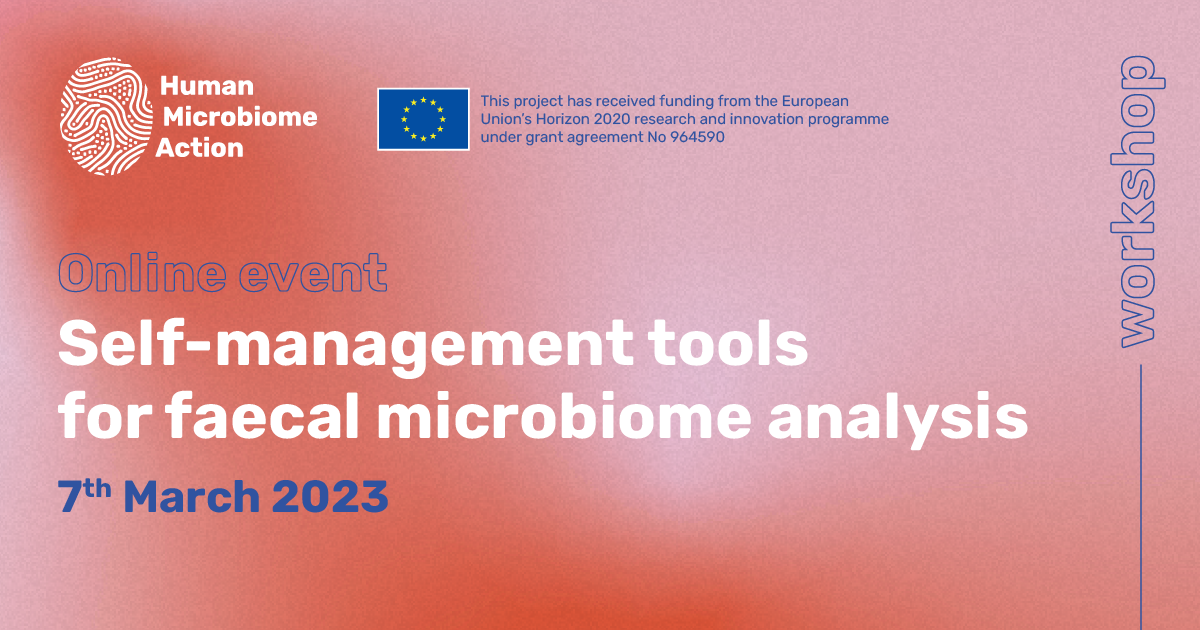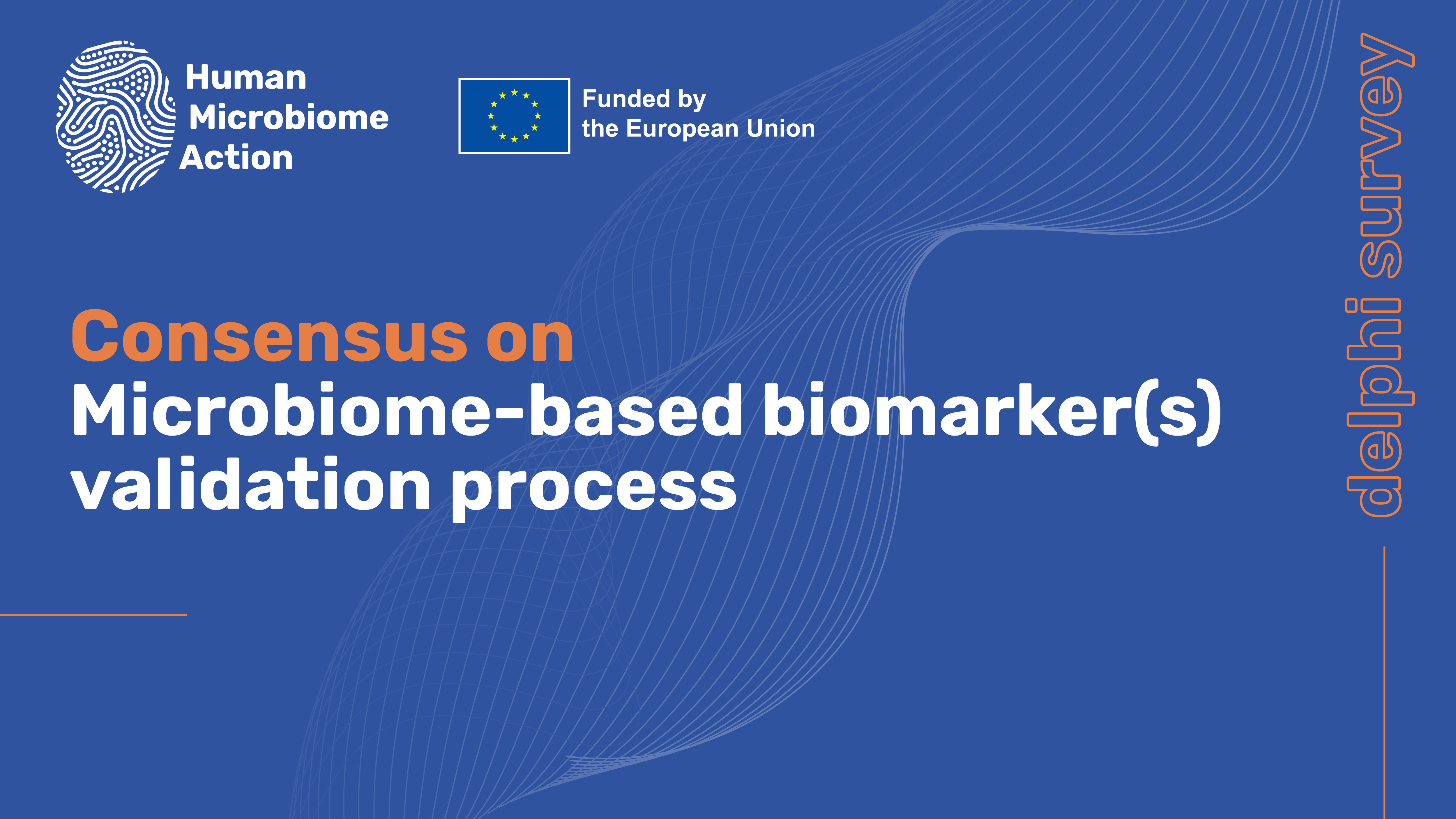Self-management tools for faecal microbiome analysis
On the 7th of March 2023, a total of 21 participants with a large diversity of expertise in the microbiome research field joined the online workshop “Consensus on policies needed to ensure regulation and control of ethical issues surrounding self-management tools”. The event is part of a series of workshops realized within the framework of the Horizon 2020 project “Human Microbiome Action” which aims to maximize the impact of European microbiome research and innovation to tackle the epidemics of chronic diseases.
During the meeting, the panel of experts debated about the tools available on the market for faecal microbiome analysis. The reason underlying this choice is that even though a multitude of tools for improving self-care and self-management are widely available, the field is looking towards adapting and improving all tools based on the state of the art and its evolution. Starting point of this discussion was the consumers’ experience when using EU and US kits for faecal microbiome analysis. Then, experts focus on three main themes:
- analytical methods involved in faecal microbiome self-assessment tools, with an in deep discussion about the level of description and validation of analytical methods, and the reference cohorts associated with these tools;
- confidence in scientific results and medical relevance, especially on whether the scientific and technical state-of-the-art already supports the interpretations and/or recommendations made in some of the reports provided to the consumers, as well as the claims made for the intended use of these products;
- Regulatory status and accessibility to the policies, both in the EU and US.
At the end of the day, the participants agreed on various recommendations – that will be listed in a report – to avoid misleading messages or over-interpretation from the results generated, on appropriate policies or good practices to be introduced so as to ensure conformity between website, labelling and advertisement of the products, and their regulatory status defined based on their intended use.
Even though the technical aspects, this kind of discussion is important and relevant for all stakeholders involved and the emergence of good practices – from consumer information to analytical methods standardization and validation, all the way to analysis of the relevance of the results in relation to the current scientific and technological state of the art – are necessary to avoid misleading the consumers.
Why is the microbiome so relevant?
In the past decade, scientific knowledge on the microbiome lead researchers to consider it crucial in the development of health and disease and several links between changes in the microbiome and various diseases have been observed. Differences in human microbiome composition and function have been associated with a variety of chronic diseases ranging from gastrointestinal inflammatory and metabolic conditions to neurological, cardiovascular, and respiratory illnesses. Despite these findings, the clear connection is yet unknown and further investigations are necessary for a better understanding of the existing link between the microbiome and the human body that will lead to the development of innovative treatment strategies. For further information about the topic visit the page “Human Microbiome” and the description of the project. Also, read the news about the workshop on defining a healthy microbiome and virome (6 October 2022).



